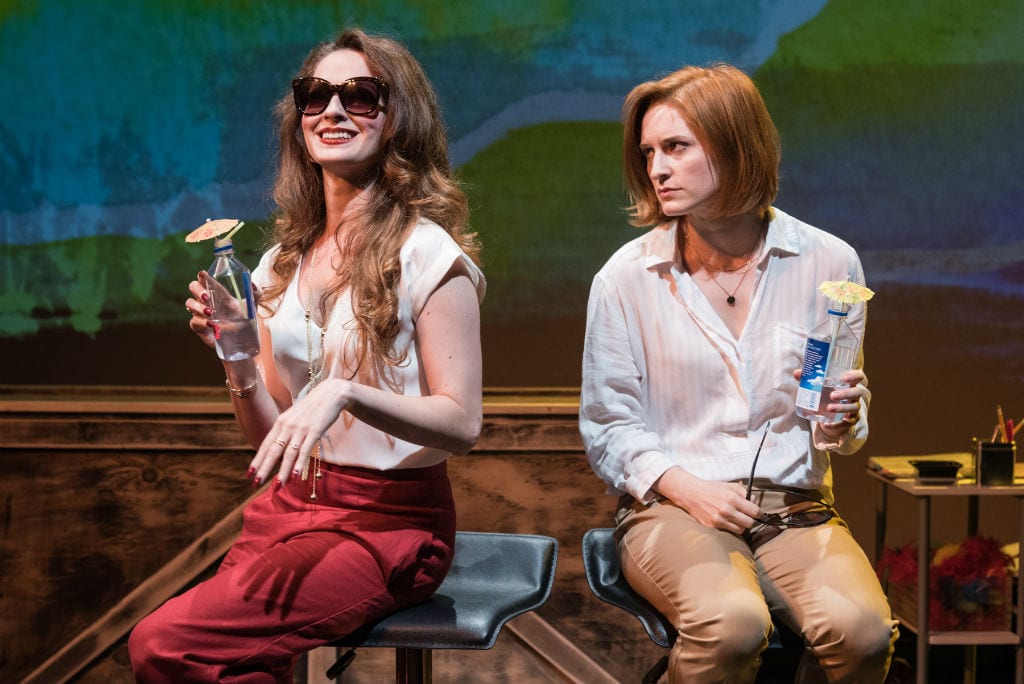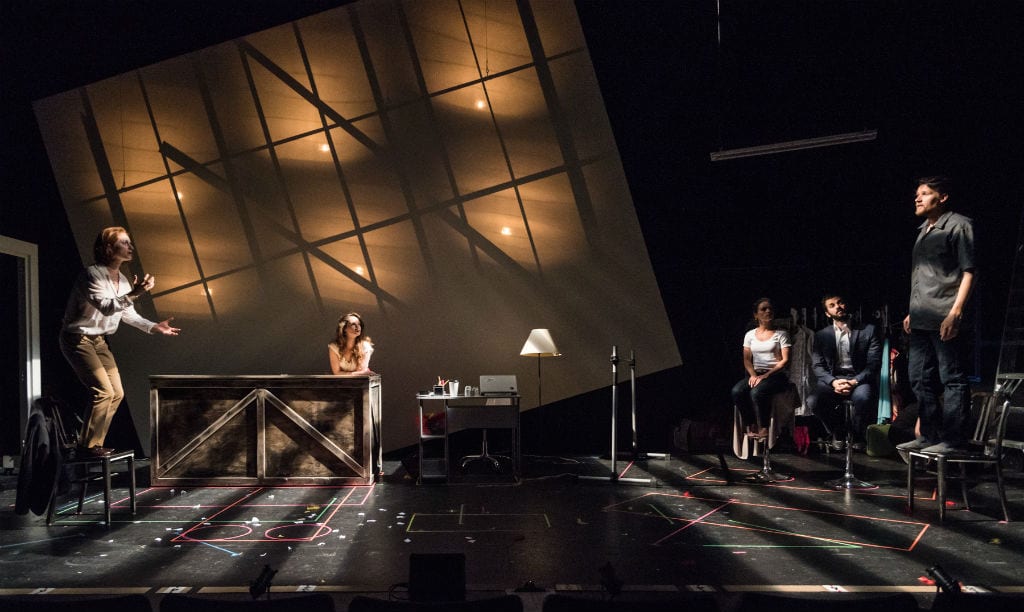Several times during Joan Beber’s new play Dear Jane, we are told that conflict is essential to good drama: “We need conflict!” one character exclaims. “Drama is conflict,” says another. Unfortunately, conflict is exactly what is missing from this adequately staged but ultimately flat, confused, and unmoving production at Theatre Row’s Clurman Theatre.
The play employs a metatheatrical frame of a character working on the play we are watching, a stand-in for Beber named Julie (Jenny Piersol). A group of actors enter a rehearsal space, chatting, arranging props, and going through various preparation rituals. Julie writes at a small table with her computer. Then the play within the play begins, in 2007, with the death of Jane (Amanda Rose), Julie’s twin sister. For the next 80 or so minutes the play jumps around in time, spanning Julie’s life from age eight to eighty-three, not in chronological order, with each scene prefaced by Julie telling us the year, and accompanied by paintings projected on a large backdrop. Some scenes are mere seconds, and none are particularly sustained. While the constant changing of setting and characters requires great dexterity on the part of the actors (particularly those who play multiple parts) and is made comprehensible by Gertjan Houben’s expressive lighting, it also means that the characters never emerge as anything close to complex individuals, but rather are mere outlines of people.
The scattershot tour through Julie’s memory includes a traumatic assault that she suffers while at college, arguments with her sister over opera and lifestyle or Julie’s divorce and agoraphobia, the violent or untrustworthy men in Julie’s life (both portrayed by Michael Romeo Ruocco), her relationships with her daughter Jill (Santina Umbach) and grandchildren Nina and Jaxon (Holly Cinnamon and Brandon Timmons), and her artistic passions. Occasionally the action returns to the rehearsal room, where we see Julie working on her writing as Jane stands over her, essentially the manifestation of a voice in Julie’s head. The most often returned-to aspects of Julie’s life are her estranged relationship with her daughter Jill, and her involvement with the death-row prisoner Tommy (Jon Kovach), whom Julie meets through her anti-death-penalty political activism and believes to be innocent. Julie’s failures with Jill come as close to real conflict as the play offers, but rather than encounters that get at the psychology of these characters we are presented with lines such as “Did I fail my daughter?” or “I don’t blame you.”
While one expects Jane to figure prominently, she is an oddly negligible character. Early scenes establish contrasts between the sisters: Jane the fashionable attention-getter with a seemingly easy life, and Julie the neurotic artist in unhealthy relationships. But Jane soon largely disappears from the action, though not from the stage—she hovers around every scene, intermittently offering a vague comment. By the play’s conclusion, she is no more than a cipher, which diminishes any emotional impact that moment surely should have had.
The play is occasionally enlivened by short dance numbers and smatterings of song, but neither that nor the competent acting can overcome the flat characters, stale dialogue, and haphazard structure.



